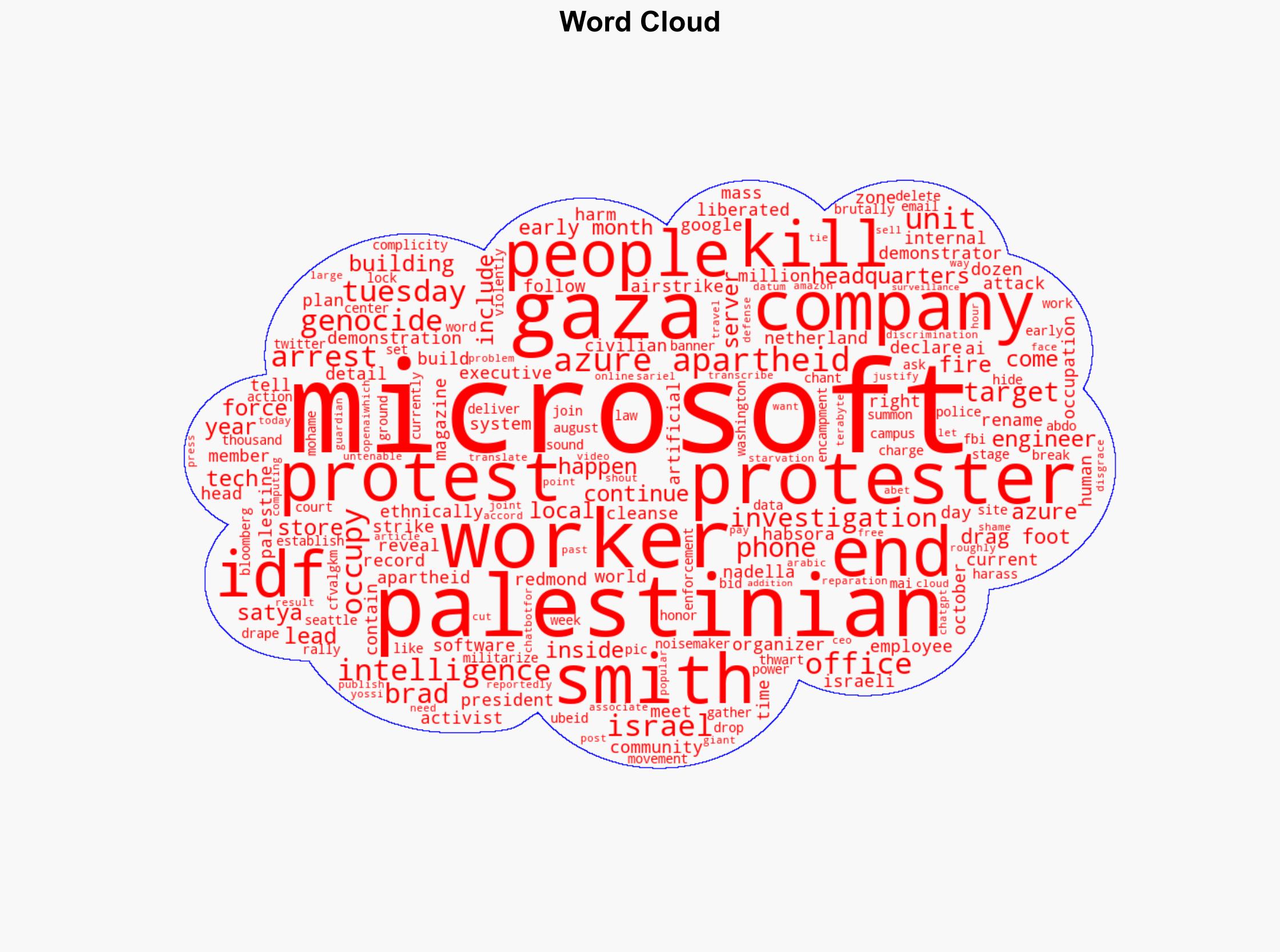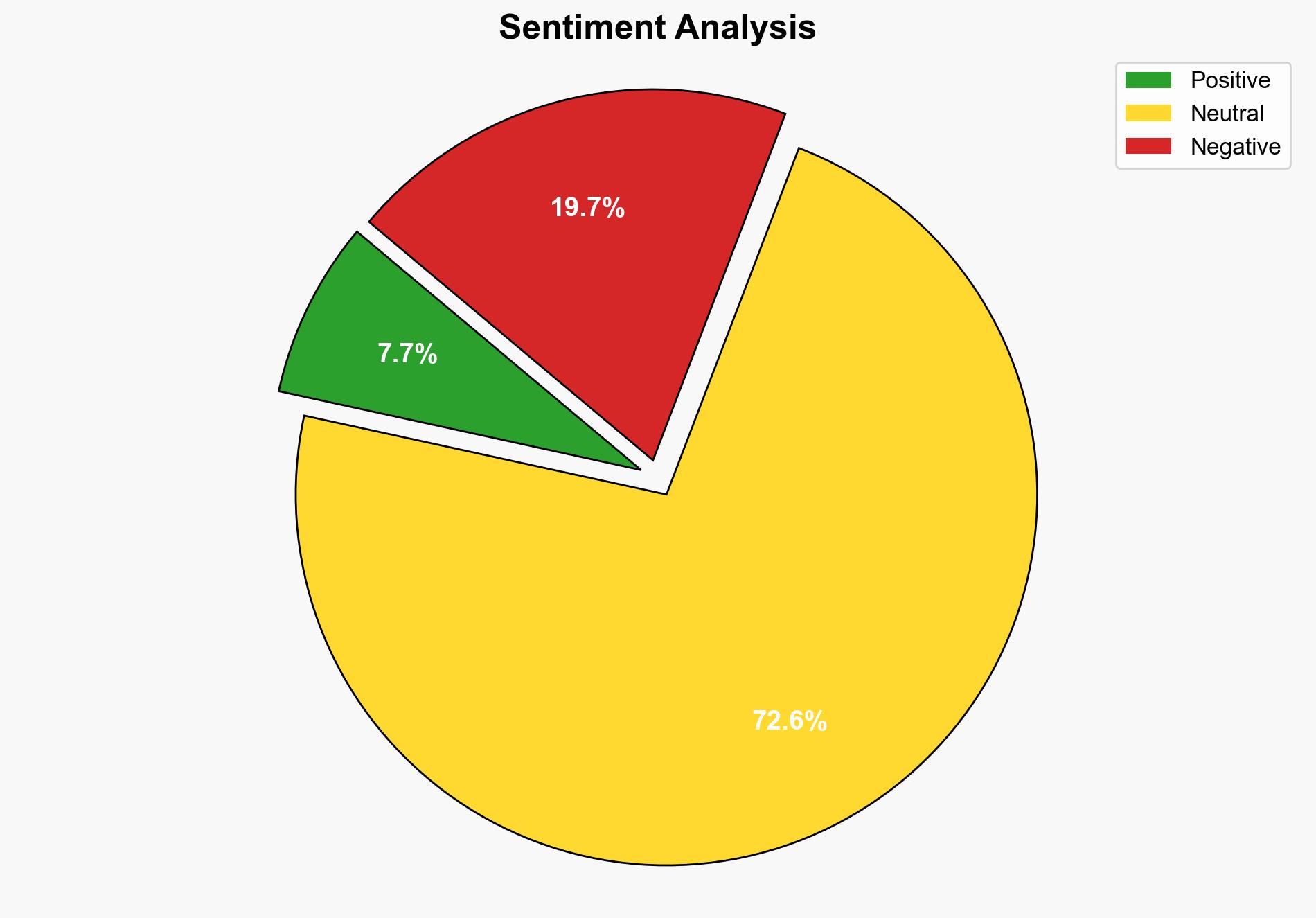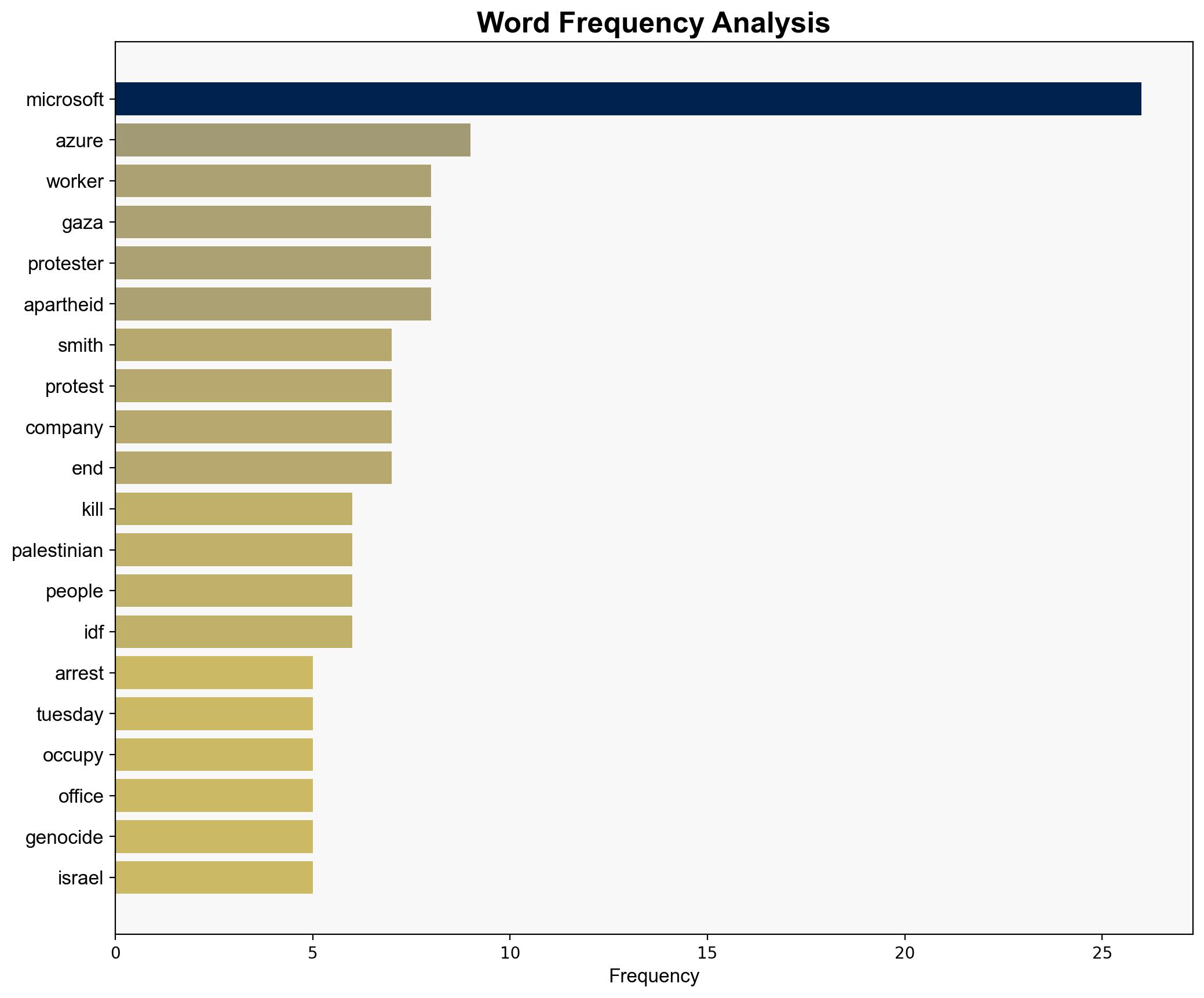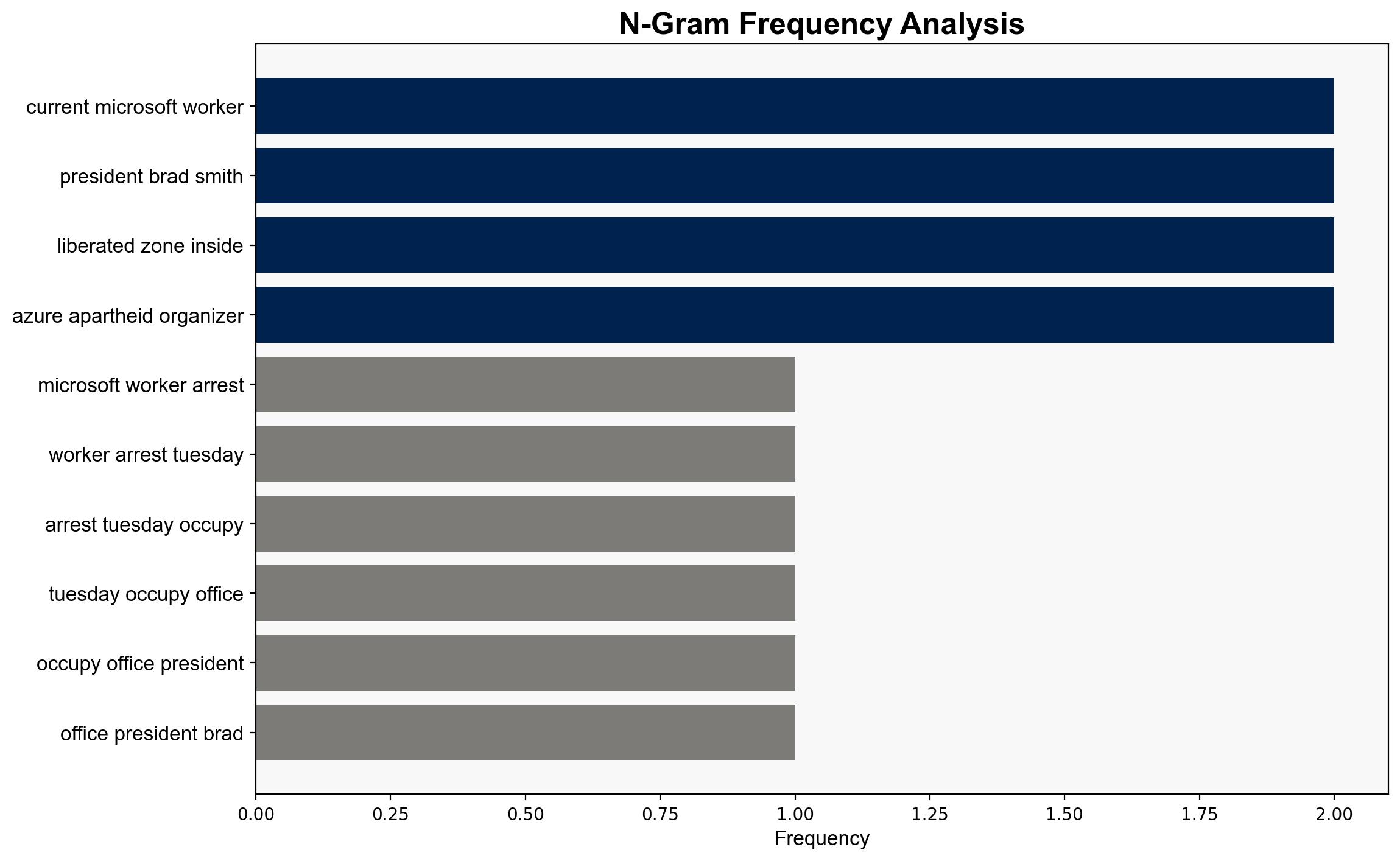‘We charge you with genocide’ Microsoft workers arrested after occupying exec’s office – Raw Story
Published on: 2025-08-27
Intelligence Report: ‘We charge you with genocide’ Microsoft workers arrested after occupying exec’s office – Raw Story
1. BLUF (Bottom Line Up Front)
The most supported hypothesis is that the protest at Microsoft is primarily driven by genuine concerns over the company’s alleged complicity in human rights violations through its technology partnerships. Confidence level: Moderate. Recommended action: Microsoft should conduct an internal review of its partnerships and data handling practices, particularly those involving sensitive geopolitical contexts, to address potential reputational and legal risks.
2. Competing Hypotheses
1. **Hypothesis A**: The protest is a genuine grassroots movement by Microsoft employees and community members concerned about the company’s involvement in human rights violations through its technology partnerships with Israeli defense forces.
2. **Hypothesis B**: The protest is orchestrated or influenced by external actors aiming to leverage Microsoft as a high-profile target to amplify their political agenda against Israeli policies, possibly exaggerating claims for greater impact.
Using ACH 2.0, Hypothesis A is better supported by the direct involvement of Microsoft employees and the specific demands related to the company’s technology use. Hypothesis B lacks direct evidence of external orchestration beyond general alignment with broader geopolitical narratives.
3. Key Assumptions and Red Flags
– **Assumptions**: It is assumed that the protesters’ claims about Microsoft’s technology use are accurate and that the protest is not significantly influenced by external actors.
– **Red Flags**: Lack of direct evidence linking Microsoft’s technology to specific military actions; potential bias in the reporting source; absence of Microsoft’s official response or counter-narrative.
– **Blind Spots**: Limited visibility into the internal decision-making processes at Microsoft regarding its partnerships and data management.
4. Implications and Strategic Risks
– **Economic Risks**: Potential loss of business or partnerships if allegations lead to reputational damage.
– **Cyber Risks**: Increased vulnerability to cyber-attacks from hacktivist groups targeting companies perceived to be complicit in human rights violations.
– **Geopolitical Risks**: Escalation of tensions between pro-Palestinian activists and companies with ties to Israeli defense initiatives.
– **Psychological Risks**: Employee morale and public perception could be adversely affected if the company is perceived as ignoring ethical concerns.
5. Recommendations and Outlook
- Conduct an independent audit of Microsoft’s partnerships and data handling practices related to sensitive geopolitical issues.
- Engage with stakeholders, including employees and human rights organizations, to address concerns transparently.
- Scenario Projections:
- Best Case: Microsoft addresses concerns effectively, improving its reputation and mitigating risks.
- Worst Case: Continued protests and negative publicity lead to significant reputational and financial damage.
- Most Likely: Microsoft takes moderate steps to address concerns, stabilizing the situation without fully resolving underlying tensions.
6. Key Individuals and Entities
– Brad Smith
– Satya Nadella
– Abdo Mohame
– Yossi Sariel
7. Thematic Tags
national security threats, cybersecurity, counter-terrorism, regional focus





